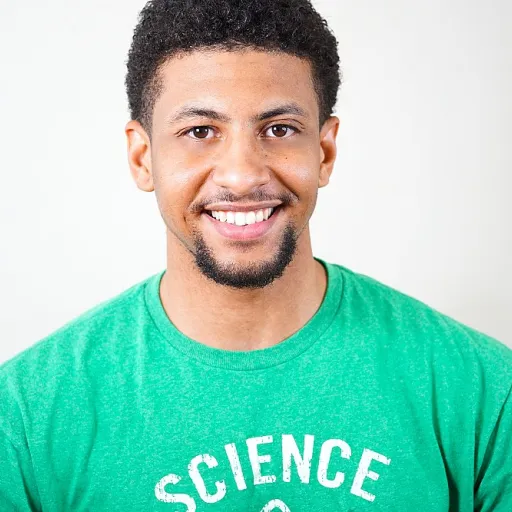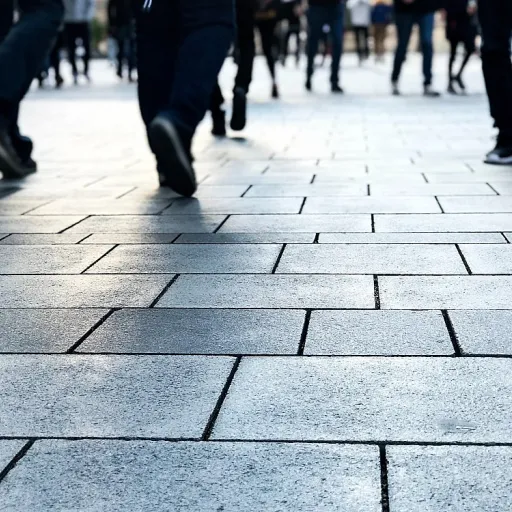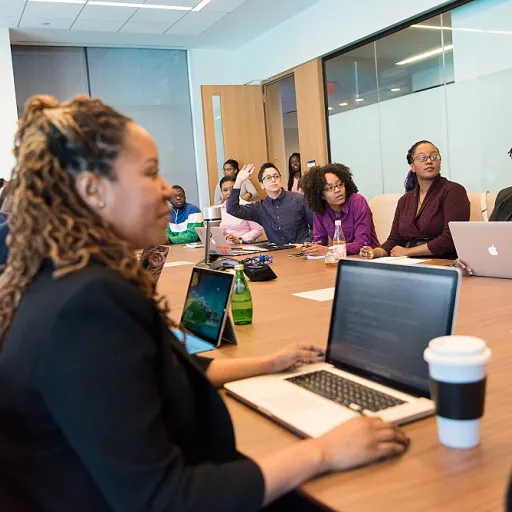
Understanding the importance of preparation
Why Preparation Sets You Apart in Teacher Interviews
Preparing for a teacher interview is more than just knowing what questions to expect. It’s about demonstrating that you’re a good fit for the school, the position, and the classroom environment. When you plan ahead, you show interviewers that you understand the importance of organization, attention to detail, and professionalism—qualities every school values in its teachers. Taking time to prepare helps you anticipate what the interview process will look like. You’ll know what to bring, from your teaching portfolio and lesson plans to your resume and cover letter. These items aren’t just paperwork; they’re proof of your experience and your approach to teaching. Don’t forget, supporting materials like letters of recommendation and samples of student work can help you answer interview questions with real examples. Preparation also means thinking about your comfort and focus during the interview. Personal items, digital backups, and a clear plan for managing your time can help you stay calm and confident. This level of readiness shows that you’re serious about the job and understand what it takes to succeed as a teacher. If you want to dig deeper into how preparation reflects your professional growth, check out this article on key traits of a completed increment. It highlights how building your skills and planning ahead can make a real difference in teaching interviews.Must-have documents for your teacher interview
Key Documents to Present Your Best Self
When you prepare for a teacher interview, what you bring can make a real difference in how you are perceived. Schools and interviewers expect candidates to be organized and ready, so having the right documents at hand is essential. Here are the must-have items you should bring to your teaching interview to show you are a good fit for the position and ready for any questions.
- Multiple copies of your resume: Even if you submitted your resume online, bring several printed copies. This helps if there are multiple interviewers or if someone joins unexpectedly. Make sure your resume is up to date and highlights your teaching experience, classroom management skills, and relevant work history.
- Cover letter: A tailored cover letter for the specific school and job shows you have done your research and are genuinely interested in the position. It’s a chance to explain why you want to work at that school and what makes you a strong candidate.
- Teaching portfolio: A well-organized teaching portfolio is a powerful tool in teaching interviews. Include lesson plans, examples of student work, classroom management strategies, and any evidence of your impact as a teacher. This portfolio can help you answer interview questions with concrete examples. For tips on how to elevate your teaching skills and portfolio, check out advanced techniques to elevate teaching skills.
- Letters of recommendation: Bring copies of recent letters of recommendation from supervisors, colleagues, or even parents if possible. These letters provide third-party validation of your abilities and character.
- Teaching certificates and transcripts: Schools will want to verify your qualifications. Bring your teaching license, certifications, and copies of your transcripts. Don’t forget to check if the school requires originals or if copies are acceptable.
- List of references: Prepare a list of professional references with up-to-date contact information. Make sure your references are aware you are interviewing and can speak to your strengths as a teacher.
Pay attention to the details: organize your documents in a neat folder or binder, and label each section clearly. This not only helps you find what you need quickly during the interview process but also shows your organizational skills—something every school values in a teacher. Don’t forget, what you bring to the interview is a reflection of your planning and professionalism, so take the time to prepare thoroughly.
Supporting materials to showcase your skills
Showcasing Your Teaching Expertise
When you prepare for a teacher interview, supporting materials can make a strong impression and help you stand out as a good fit for the school. Beyond your resume and cover letter, bringing a well-organized teaching portfolio is a smart move. This portfolio should include examples that answer common interview questions about your teaching style, classroom management, and lesson planning.- Teaching Portfolio: Include lesson plans, samples of student work, and classroom management strategies. These items show how you plan and execute lessons, and how you adapt to different learning needs.
- Letters of Recommendation: Bring recent letters from supervisors or colleagues who can speak to your teaching abilities and work ethic. These can help interviewers understand what makes you a strong candidate for the position.
- Evidence of Professional Development: If you have completed any upskilling courses or attended workshops, include certificates or summaries. This demonstrates your commitment to continuous learning and staying current in education trends. For more on how upskilling can empower teachers, check out this resource on empowering teachers to lead the upskilling revolution.
- Sample Assessments: Show examples of how you assess student progress. This could be rubrics, quizzes, or feedback forms that highlight your approach to supporting student growth.
Personal items to help you stay comfortable and focused
Staying Comfortable and Focused During Your Interview
When preparing for a teacher interview, it’s easy to focus only on documents like your resume, cover letter, and teaching portfolio. However, personal comfort can make a real difference in how you present yourself and answer interview questions. If you’re distracted by discomfort, it’s harder to show you’re a good fit for the school and the position. Here are some personal items you might want to bring to help you stay calm, collected, and ready to ace your teacher interview:- Water bottle: Interviews can be long, and staying hydrated helps you maintain focus and energy. A sip of water can also help if your throat gets dry while discussing your lesson plans or classroom management strategies.
- Notebook and pen: Jot down important points, questions you want to ask, or notes about the school and teaching position. This shows you’re prepared and engaged in the interview process.
- Tissues or hand sanitizer: These small items can help you feel fresh and confident, especially if you’re nervous or waiting for your turn to meet the interview panel.
- Breath mints: A simple way to boost your confidence before speaking. Just don’t forget to dispose of them before you enter the interview room.
- Comfortable, professional clothing: Choose an outfit that makes you feel at ease but also fits the school’s culture. Pay attention to details—wrinkle-free clothes and polished shoes can help you make a strong first impression.
- Copies of your interview plan: Having a checklist of what to bring and what to expect can keep you organized and reduce last-minute stress.
Digital tools and backups for a smooth experience
Stay Ready with Digital Essentials
In today’s teaching interviews, digital tools can make a big difference in how you present yourself and your work. Schools often expect candidates to be comfortable with technology, so bringing the right digital items shows you are prepared for a modern classroom environment.
- Tablet or Laptop: Having your device ready allows you to quickly access your teaching portfolio, lesson plans, and student work samples. It’s also helpful for showing digital classroom management tools or interactive lesson ideas.
- USB Drive or Cloud Access: Don’t forget to save digital copies of your resume, cover letter, letters of recommendation, and any lesson plans. If the school’s Wi-Fi is unreliable, a USB drive ensures you can still share your materials.
- Chargers and Adapters: Interview days can be long. Bring chargers for your devices and any necessary adapters, especially if you plan to connect to a projector or school computer.
- Backup Files: Prepare for the unexpected. Have backup copies of your teaching portfolio and student work in multiple formats (PDF, PowerPoint, etc.) so you can adapt to whatever technology the school uses.
- Digital Notes: Use your device to keep a list of questions you want to ask about the job, the school, or the interview process. This shows you are engaged and have taken time to prepare.
Pay attention to the details: silence notifications, organize your files for quick access, and test your tech before the interview. These small steps help you stay focused and show you are a good fit for a teaching position that values digital literacy.
How upskilling can enhance your teacher interview
Demonstrating Growth and Adaptability
Upskilling is more than just a buzzword in education. When you walk into a teacher interview, showing that you have invested in your professional development can set you apart from other candidates. Schools want teachers who are not only knowledgeable but also eager to learn and adapt to new teaching methods, technologies, and classroom management strategies.How Upskilling Influences Your Interview
Bringing evidence of your upskilling efforts—like certificates from recent workshops, online courses, or specialized training—can strengthen your teaching portfolio. When you discuss your resume or answer interview questions about your teaching style or classroom management, referencing recent upskilling experiences shows you are proactive and committed to growth. This can help you respond confidently to questions about what you would bring to the school or how you plan to handle new challenges in the classroom.- Include recent training or certifications in your portfolio and resume.
- Mention specific skills you have developed, such as digital tools for lesson plans or new approaches to student work assessment.
- Be ready to discuss how upskilling has improved your teaching and how it will help you be a good fit for the position.













